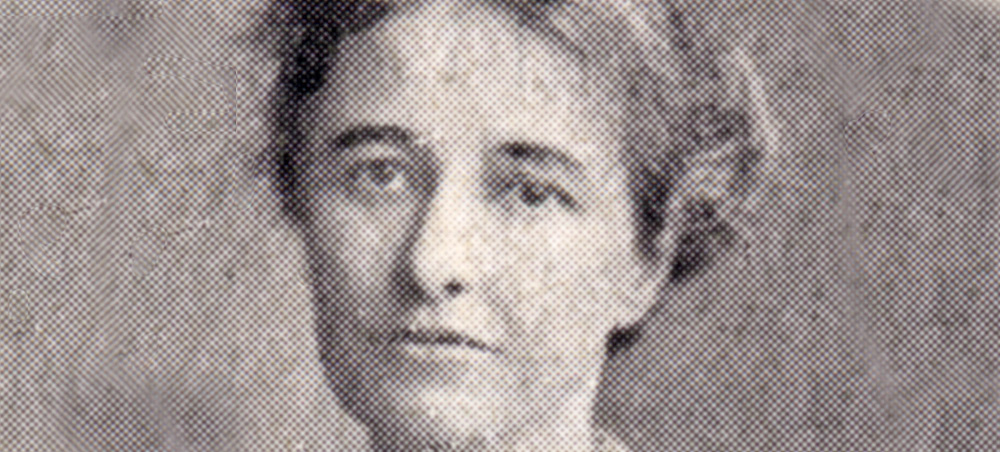
 |
WOMEN WORKING FOR PEACE |
||
THE MEN WHO SAID NO | ROAD TO CONSCRIPTION | CONSCIENTIOUS OBJECTION | PRISONS | SENTENCED TO DEATH | TRIBUNALS | WIDER CONTEXT | INDEX |
||
 |
||
| EDITH M ELLIS | WOMEN WORKING FOR PEACE | |
|
Edith Maud Ellis was actively involved in supporting conscientious objectors during WW1, particularly through the Society of Friends (Quakers). She became Treasurer and acting Secretary of the Friends Service Committee set up to support Quakers who became conscientious objectors. She was one of the women who served time in prison in WW1, in her case as an official of the Society, for publishing a leaflet without referring it for censorship prior to publication. She and her sister Marian also helped to support the No Conscription Fellowship financially during WW1, though their strong principles led them sometimes to disagree with NCF policy. She was born on 6 January 1878, with her identical twin sister Marian, and three brothers (two of whom died), their father being an MP and former Under Secretary of State for India. During the Boer war their home became a collection point for clothes for the women’s camps in South Africa. At the end of 1917 it was ordered, under the Defence of the Realm Act, that all writings about the war or the making of peace be subjected to censorship before publication. The Society of Friends decided not to obey. Two women were arrested for distributing a leaflet called A Challenge to Militarism, about the fate of COs in prison. As acting Secretary of the Friends Service Committee Edith Ellis testified that the FSC was responsible for its publication so the three officers - Chair, Secretary and Treasurer - were then charged. Appearing at the Guildhall in May 1918, with Quakers silently praying for them, the representatives of FSC were sentenced. Edith Ellis was fined £100 plus 50 guineas costs or three months imprisonment. The two male representatives, Harrison Barrow and Arthur Watts received six months imprisonment. In her statement on appeal, Edith Ellis said that the Quaker attitude to war had been known for over two centuries. ‘We believe that we are called upon to trust to the power of God alone and not in that of our armies and navies. As a woman I wish to say that I do not desire any lesser protection, and those of us who realise this are grateful to the young men who have remained true to the same ideal. Our Committee has been specially entrusted with the duty of making known the facts about conscientious objectors in prison. We believe this to be our religious duty….We cannot submit the question of publication to any Government official, or accept his decision. Disloyalty to that which to us is the voice of God can never, we are convinced, make for national or international righteousness.’ Sir Alfred Newton, chairman of the Quarter Sessions where the appeal was held in July 1918, said: ‘One can scarcely contain oneself, and restrain one’s indignation. The law had been deliberately and wilfully and ruthlessly broken. For the protection of the Empire and of the civilised world it has been decided that a check should be put on the publication of certain literature…’ The appeal was dismissed and Edith went to prison, which put a serious strain on her health. She was very distressed by the young girls she found in prison imprisoned for drunkenness and sexual immorality, and became aware, like the COs, of the need for prison reform. At the end of the war she turned her home Wrea Head, near Scalby, in Yorkshire, into a convalescent home to help COs recover after their terms of imprisonment which had left many of them seriously ill, and to help them secure employment after their release. She established the Edith Ellis Charitable Trust which makes grants to this day in the areas of her special concern such as international peace and conflict resolution. After the war she developed a concern for peace in Ireland, travelling there with a Quaker group, and doing a speaking tour on her return. She later campaigned to ‘make Christians accept their responsibilities as peacemakers.’ In 1948 she gave Wrea Head and its contents to the North Riding County Council to be used for education and the community. It is now a hotel. She died on 27 March 1963.
|
|
|